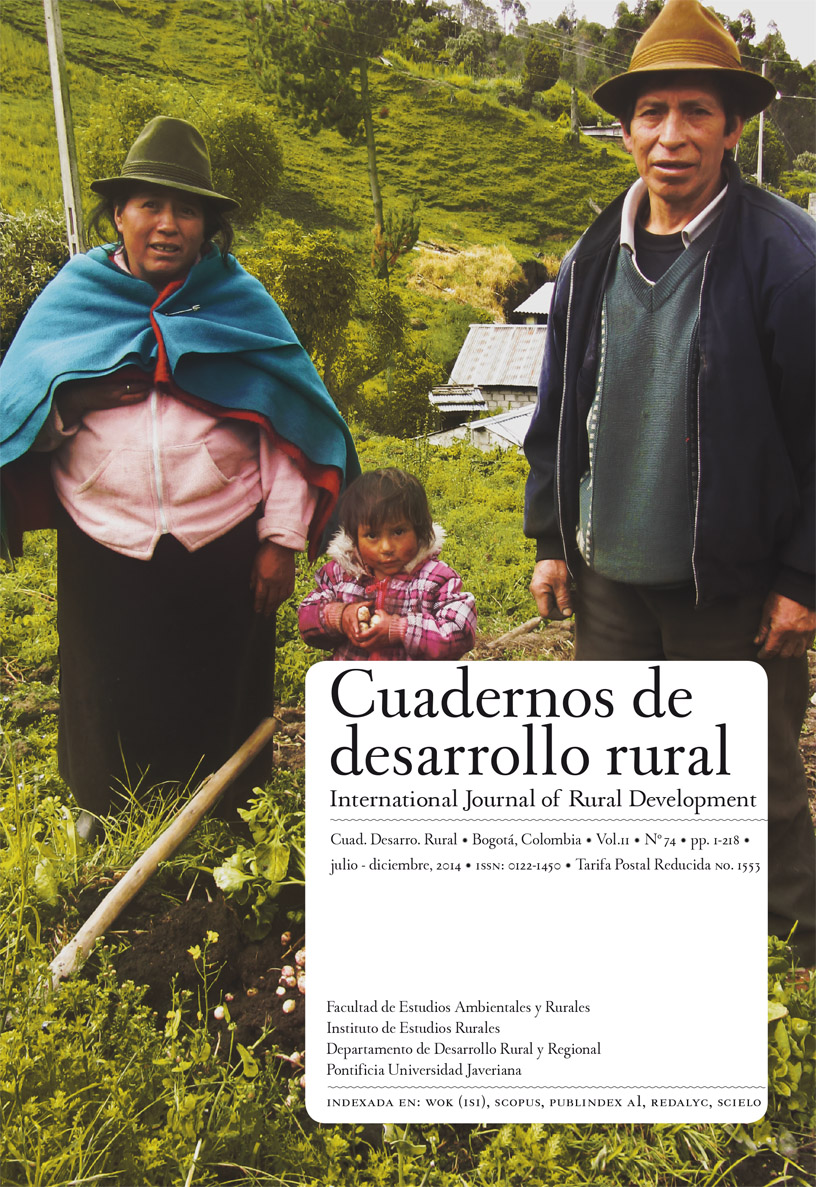Abstract
Recent literature analyses the role of territorial specificities, as the core of territorial rural developmentstrategies based on differentiation. Unfortunately, the proliferation of quality assurance schemes is provokinga “labyrinth of labels” which diffuses the local efforts for capitalizing rural specificities. A second-generationof labels is currently being developed to simplify the territorial differentiation message. A number ofterritories in Southern Europe are basing their rural development strategies joining the so-called EuropeanTerritorial Quality Mark (ETQM) Project. This paper proposes an original methodology, designed anddeveloped by authors, for the evaluation of some of these second-generation labels. This methodology hasbeen validated in 15 rural territories as the pioneers of the ETQM in Spain.
Cuadernos de Desarrollo Ruralis registered under a Creative Commons Attribution 4.0 International Public License. Thus, this work may be reproduced, distributed, and publicly shared in digital format, as long as the names of the authors and Pontificia Universidad Javeriana are acknowledged. Others are allowed to quote, adapt, transform, auto-archive, republish, and create based on this material, for any purpose (even commercial ones), provided the authorship is duly acknowledged, a link to the original work is provided, and it is specified if changes have been made. Pontificia Universidad Javeriana does not hold the rights of published works and the authors are solely responsible for the contents of their works; they keep the moral, intellectual, privacy, and publicity rights.
Approving the intervention of the work (review, copy-editing, translation, layout) and the following outreach, are granted through an use license and not through an assignment of rights. This means the journal and Pontificia Universidad Javeriana cannot be held responsible for any ethical malpractice by the authors. As a consequence of the protection granted by the use license, the journal is not required to publish recantations or modify information already published, unless the errata stems from the editorial management process. Publishing contents in this journal does not generate royalties for contributors.


